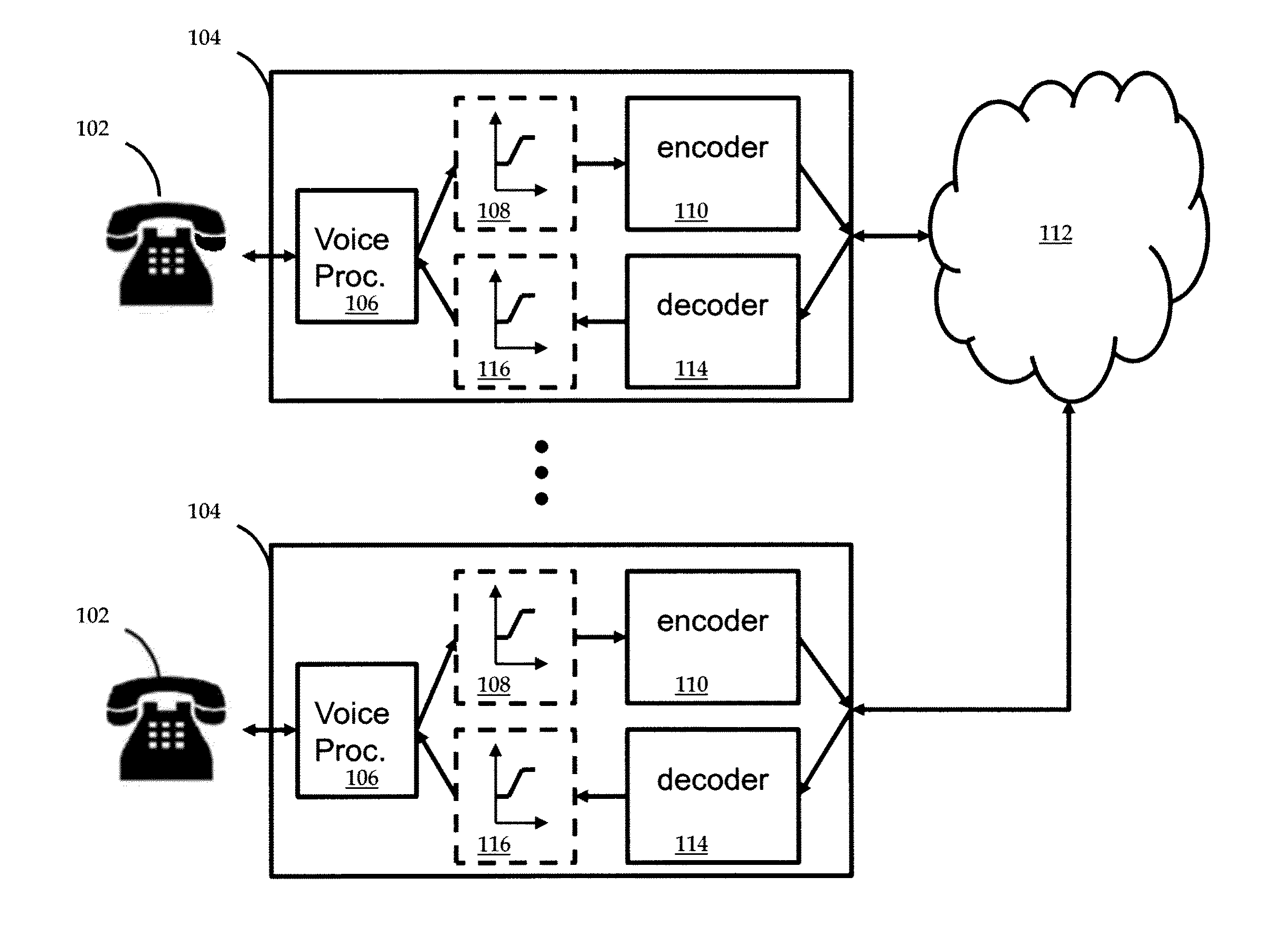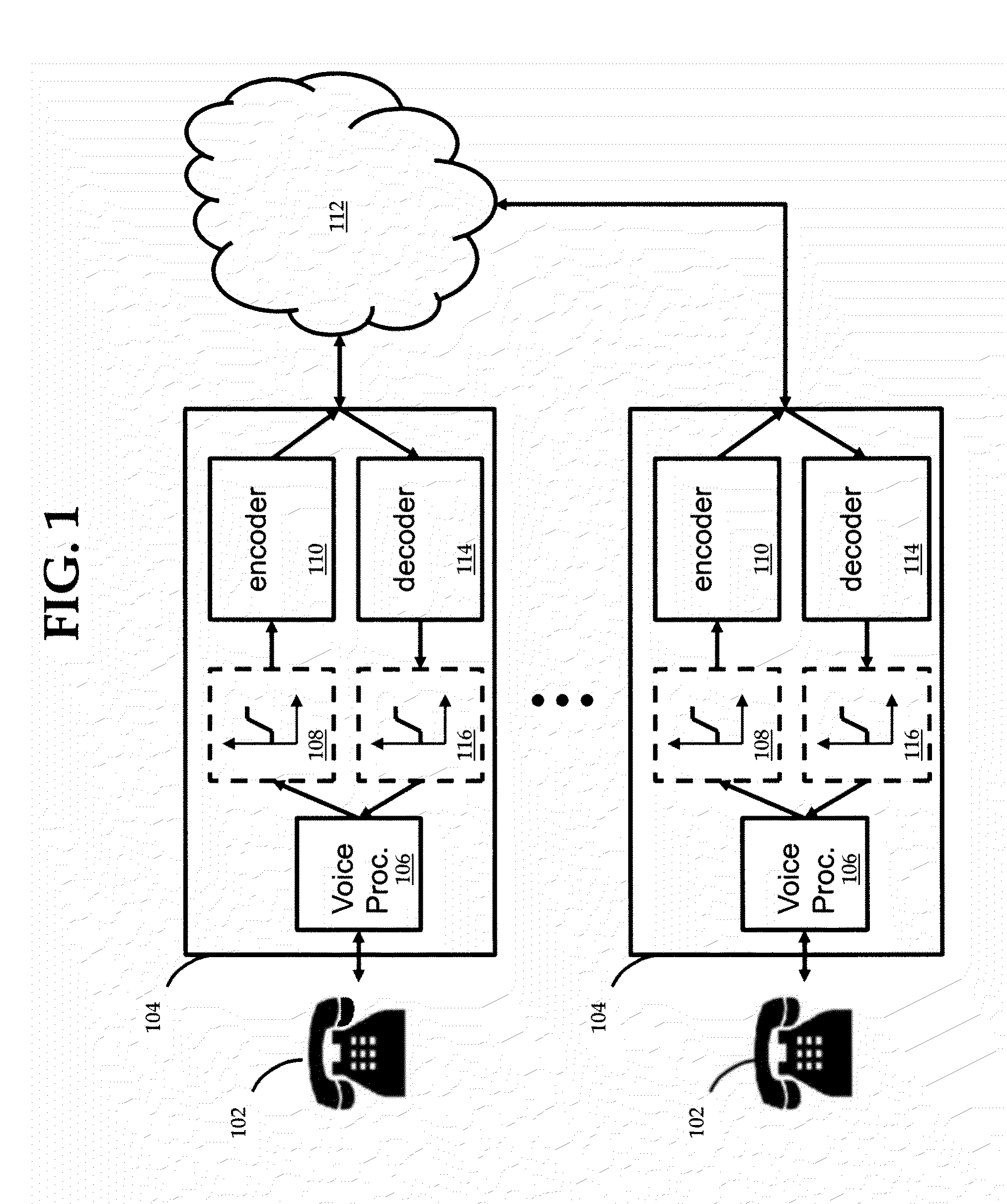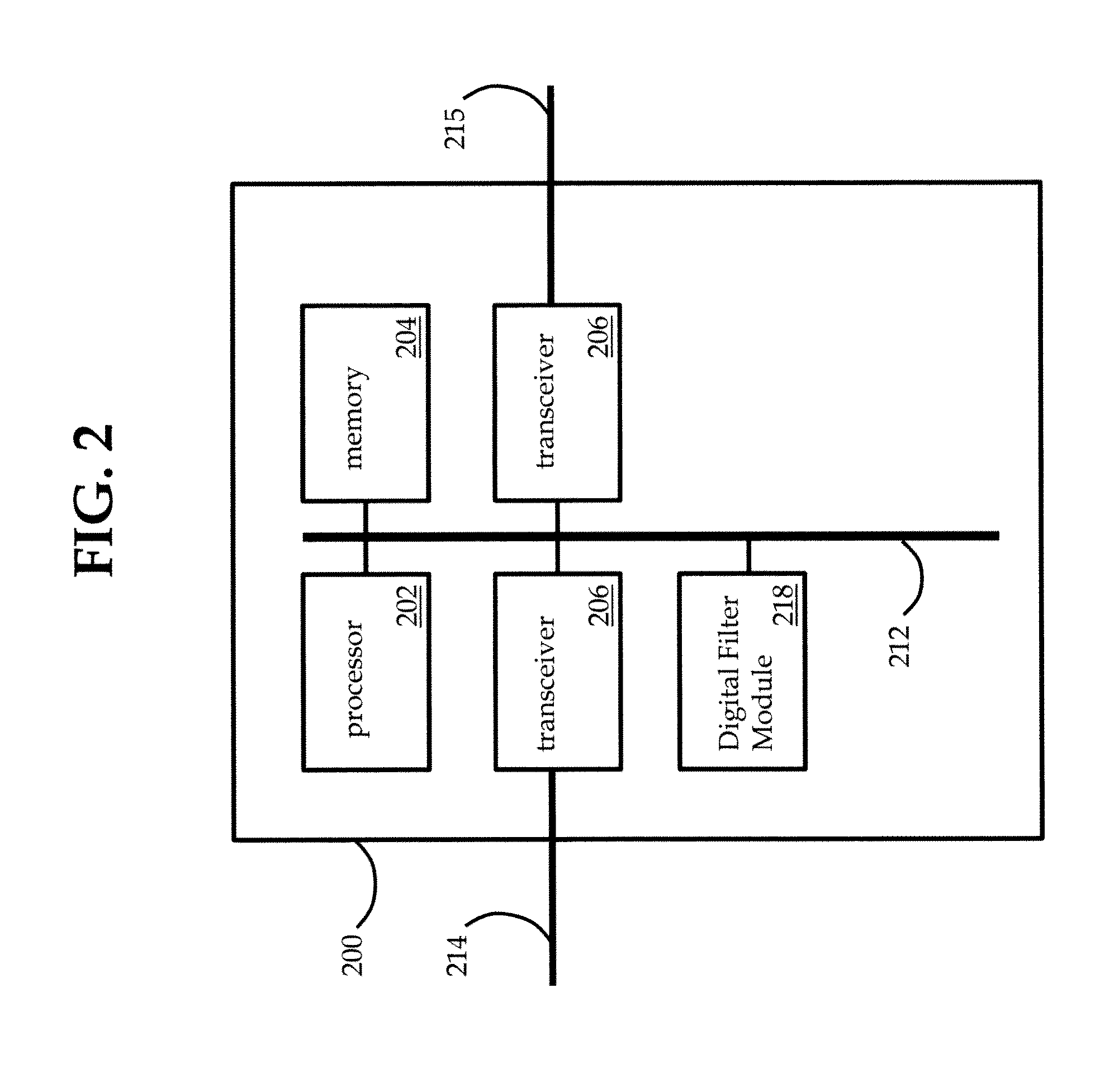System and method for method for improving speech intelligibility of voice calls using common speech codecs
a speech codec and speech intelligibility technology, applied in the field of improving the intelligibility of voice calls, can solve the problems of encoders producing relatively lower quality encoding, attenuation of higher-frequency spectral components, and total algorithmic delay of 37.5 ms, so as to improve the intelligibility of voice signals, improve intelligibility, and boost the high-frequency spectral content of voice signals.
- Summary
- Abstract
- Description
- Claims
- Application Information
AI Technical Summary
Benefits of technology
Problems solved by technology
Method used
Image
Examples
Embodiment Construction
[0032]Embodiments of the present invention generally relate to improved speech intelligibility in a telephone call, and, in particular, to a system and method for providing either pre- or post-emphasis to compensate for spectral artifacts caused by multiple encoding and decoding cycles through speech encoders, such as by boosting high frequency spectral content relative to lower frequency spectral content. Processing may take place as part of a module that implements a speech encoder and / or a speech decoder. The encoder / decoder may be located in a variety of places, such as a media gateway, in a conference mixer, in an endpoint, in a call center, in a Private Branch Exchange (“PBX”), etc.
[0033]As used throughout herein, higher-frequency spectral content or upper spectral portion refers to spectral content above approximately 1500 Hz, and lower-frequency spectral content or lower spectral portion refers to spectral content below approximately 1500 Hz, unless a different meaning is cl...
PUM
 Login to View More
Login to View More Abstract
Description
Claims
Application Information
 Login to View More
Login to View More - R&D
- Intellectual Property
- Life Sciences
- Materials
- Tech Scout
- Unparalleled Data Quality
- Higher Quality Content
- 60% Fewer Hallucinations
Browse by: Latest US Patents, China's latest patents, Technical Efficacy Thesaurus, Application Domain, Technology Topic, Popular Technical Reports.
© 2025 PatSnap. All rights reserved.Legal|Privacy policy|Modern Slavery Act Transparency Statement|Sitemap|About US| Contact US: help@patsnap.com



